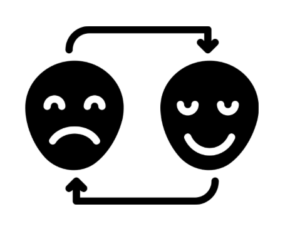Most Americans know the proverb Practice Makes Perfect, dating to the 1550s. Its original phrase was “Use makes perfect.” It came from the diary and autobiography of John Adams, a U.S. President. This concept is what led me to use the phrase “Happy Practicing!” at the end of all my presentations and writings.
Recently I learned a new phrase, Perfect Practice, credited to the legendary American football coach Vince Lombardi. He believed Practice does not make perfect. Only perfect practice makes perfect.
Upon further investigation into what this truly meant, Lombardi was most likely discussing a concept originated by Anders Ericsson called Deliberate Practice, which in my view, means that deliberate practice achieves perfect practice.
Deliberate Practice means you intentionally practice skills with high precision and attention to detail.
Whether you describe the concepts I share below as deliberate or perfect, they both refer to a specific type of practice that involves applying it in specific ways to improve performance in a particular skill. In this instance, it’s all about applying deliberate practice in mastering Advanced Etiquette skills.
9 Etiquette concepts
to keep in mind for deliberate practice
E = Exemplify Consistency
Deliberate practice requires consistently developing your manners. Regularly applying etiquette principles in daily interactions at home, in the workplace, and in the community helps internalize appropriate behavior.
T = Thorough attention to detail
Etiquette is about paying careful attention to small details contribute to overall manners. Deliberate practice involves focusing on specific aspects, such as body language, dress, precise words used, and other social cues.
I = Increase self-awareness
Deliberate practice in etiquette requires that individuals be aware of their behavior and how it impacts others. Daily reflection on actions and self-improvement is crucial to etiquette mastery. Seeking and embracing feedback from mentors, peers, or professionals helps identify areas for improvement.
Q = Quality repetition
Etiquette, like any skill, requires repetition for mastery. It’s not enough to repeat the same actions repeatedly without mindful improvement. Instead, Deliberate Practice emphasizes striving for excellence by consistently refining and perfecting your technique.
U = Use role-play
Engage in acting out situations as an effective way to build your skills, whether by yourself or with others. By simulating social scenarios, you can practice the appropriate behavior, responses, and gestures to build confidence and polish your manners.
E = Engage in role-modeling
Doing the right thing is not old-fashioned, outdated, or unnecessary. Choose the high road in your willingness to stand out as a great role model to yourself and others and continue mirroring other positive behaviors to achieve the best results. Over time, if we’re lucky, we will Make America Kind Again.
T = Transform daily habits
Habits must be integrated seamlessly into your daily life to have optimal etiquette. Changing and altering your BATS (beliefs, attitudes, and techniques/traditions) in handling situations ensures that new techniques can become a natural part of your behavior.
T = Transmute observations
“Transmute” means to change or alter something in a significant transformation. Deliberate Practice entails observing people with good manners. It means paying attention to how others react to your words and actions and their consequences—observing and analyzing your etiquette aids in adopting positive conduct.
E – Embrace patience and perseverance
Deliberate practice requires time to develop and refine automatic behaviors. Acknowledging this will help you overcome the many challenges and impatience we all desire to receive fast results. Etiquette mastery is an ongoing process because every encounter that requires etiquette is unique.
Following this ETIQUETTE approach to deliberate practice will cultivate impeccable etiquette and enhance your comfort in all business and social interactions.
Conclusion
As a child, I learned the Golden Rule: “Do unto others as you would have them do unto you.” Then when I started the business, I learned the Platinum Rule: Do unto others as they would like to be treated.”
While the Golden Rule was an attempt to have everyone act in the same positive way, it implied everyone was to be treated the same and ignored the needs of others. Now, the Platinum Rule is more empathetic and compassionate to embrace today’s global diversity and desire for inclusiveness as the best moral guideline to display.
Practice Makes Perfect was the old saying, and now there’s Deliberate Practice as the new guiding principle for mastering etiquette.
Happy Practicing!











Hi. I am interested to attend the advance etiquette training. How can I register? Thank you.
Hello Orchids: Thank you for your interest in attending our training seminars. I will reply directly with full details. You’ve made my day with your inquiry.